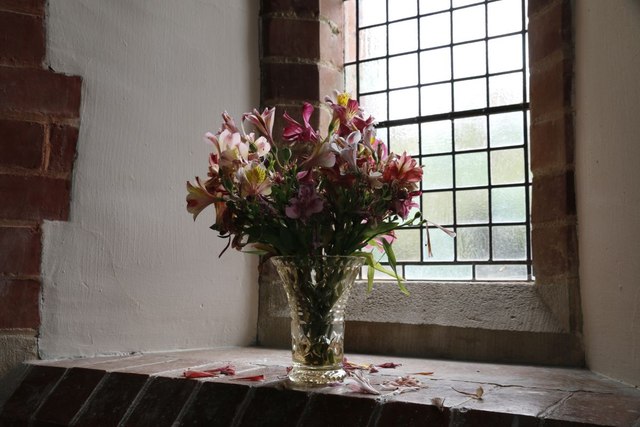Finding gratitude as my parents’ dementia marches on
Today just happens to be my birthday, which I’m not sharing to score birthday wishes, but rather to put a finer point on life as an adult child of parents with dementia.
My parents have not remembered/acknowledged my birthday (or my sister’s, or my sons’) for a few years now. This does not bother me in the slightest. Nor does it disturb my sister. It’s just par for the course – a simple fact of life.
I could choose to be sad or upset by that, but what’s the point? There isn’t a single thing I can do to change it, and if I were to point it out to them, all I would succeed in doing is to make them feel bad.
Life in two-week increments
My sister lives two states and four hours away. Now that mom’s dementia is advancing, we’ve decided that leaving them alone overnight, which we had been able to comfortably do until recently, is no longer safe.
We trade overnight stints, two weeks on, two weeks off. So every two weeks, my sister and her husband travel down to stay with my parents. When they head back home and it’s my turn, I leave my house at approximately 8:45 every night so I can check in with the caregiver before she leaves at 9:00.
Sometimes I stay up and watch some TV with mom; sometimes we’re both tired enough that we move straight to the nightly rituals of turning out lights, ensuring the doors are locked and the toaster is unplugged. (Don’t ask.)
I give dad his nighttime meds. I make sure mom gets to bed. I go upstairs. I read. I catch up on emails or social media; I fall asleep (on that new memory-foam mattress with cooling gel top!) with one ear tuned for the notification that will sound on my phone if mom opens one of the exterior doors during the night. (So far, this is most likely to happen preceding garbage pick-up morning, an event which manages to throw her into the cognitive soup, every single week.)
A couple of times she’s come up in the middle of the night to wake me because she’s worried about dad. He made a noise in his sleep, or he’s having difficulty breathing. She can’t wrap her head around what’s happening to him, even though he’s been on hospice care for nine months. I wonder what it’s going to be like when he really is actively dying instead of on this ridiculously low-angled trajectory towards it.
The silver linings
In the morning, I stick around until the caregiver arrives at 9:00. Meanwhile, I do my yoga, religiously, unimpeded by the things that tend to distract me at home. Afterward, my (amazing, supportive) husband brings me my coffee and hangs out with me, reading at the dining room table while I tackle the Wordle-du-jour. It’s a quiet time we don’t always practice with the same consistency otherwise.
Every two weeks when it’s my sister’s turn, life gets livelier. While mom & dad are still (usually) snoozing peacefully in the early morning, my sister comes up to my house for coffee. (Her husband stays back with mom & dad.)
We’ve created a silly ritual of our own: “morning coffee dance time.” (Put that in place of the “everybody dance now” lyric of the 90’s hit by C+C Music Factory, “Gonna Make You Sweat.” It never fails to crack us up.)
Before mom’s dementia got to this stage, my sister and her husband would usually visit once a month, for three or four days. She’d come for coffee two or three times, but now we have a routine that we genuinely look forward to, at least 11 out of the 14 mornings they’re here. We drink our coffee; discuss alternative plans for different scenarios for mom and dad’s care; talk about her playwriting classes. And when we’re caught up for the day, we dance around my house like a couple of idiots.
We’re closer than we’ve ever been. I’ll take that as my birthday gift any time.




8 Comments
I so miss my morning zumba that I had when my insurance covered Silver Sneakers…The two of you dancing around the house makes me want to dance too… Already greeted your b’day with joyful feelings and salutations…now i’ll walk and dream of dancing with abandon!
Awww, losing it with this one. Gosh darn! We will have to do a birthday dance when I see you soon! Must be a good one from the 80’s xo
Happy birthday. I really hope you both because it’s a bitch afterward. I am having good and bad days. I didn’t think I would feel this empty.
I’m sure Susan!! Especially when it’s so sudden. Even though we know it has to come eventually, when there’s no warning, it’s just that much harder on those still around. I saw the contrast with my grandmothers – Jackie had an aneurism and died out of the blue and I don’t think Nanny’s grief receded until her dementia was so advanced that she forgot nearly everything. My other grandfather died after years of battling COPD and lung cancer, so it was a blessing by then, and so much easier for everyone to be at peace. Sending hugs!!
What a great way to honor your birthday with new family traditions and appreciation of the simple things. I call a birthday dance party and a bottle o bubbly very soon. Enjoy YOUR day! xo
Haha – that sounds like an excellent idea Karen!!!
I’ve been thinking about this for a while. I was struck by what I see as the precision of a well experienced clinician blended with the humanness of a person who understands and feels her family as well as the dynamics of families in general. That blend is exceedingly rare, and perhaps not fully appreciated in the workings of daily and nightly management of these situations. This not only serves your parents beyond what they would likely receive from an unrelated caretaker, it serves you as you clearly prevent the hidden disintegration that so many family caregivers experience. As I’ve said before, I wish I were still teaching as I would ask your permission to tell your story as a model for others to follow.
As ever, Marco, it is rewarding and affirming to have your support! I will freely admit that it has been a byproduct of our decision to work it out this way that we’re preventing that disintegration, rather than having had that as an objective. It is absolutely a happy byproduct, though!!
I’m not sure how often I’ve directly mentioned my gratitude that my sister and I have been on the same page with this entire process, but it is decidedly something I hope is helpful to any readers who might be going through this themselves, either now or in the future. Whenever I tell people that both of my parents have dementia, most often the reaction is one of either a) sympathy, or b) sadness for me (as in, “oh! That’s so sad”). I know they mean well, but to me, the saddest part isn’t the fact of the illness (which I believe is most people’s focus when they reflexively respond that way). The saddest part is how it can tear families to pieces, from so very many angles, when, in fact, that outcome is completely preventable.
I think my next post in this realm will be focused purely on that!